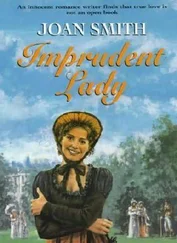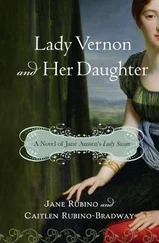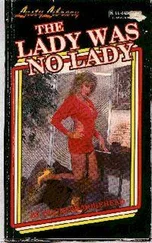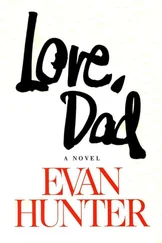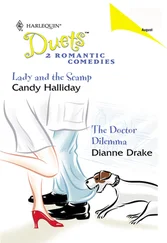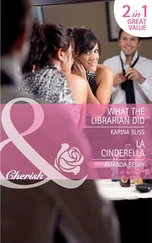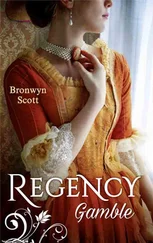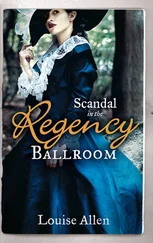“I didn’t vanish no place. I was around the block. And I didn’t gang up on nobody, neither.”
“You weren’t around the block, Glennon. We’ve been looking for you since noon.”
“So I took a walk,” Glennon said. “So what?”
“So nothing,” Carella said. “Fellow can take a walk. No law against that.” He paused, smiled, and said, “Where’d you go when you left your house, Glennon?”
“Downstairs.”
“Where downstairs?” Willis asked.
“The candy store.”
“What candy store?” Brown asked.
“On the corner.”
“How long did you stay there?” Di Maeo asked.
“I don’t know. An hour, two hours, who remembers?”
“Somebody better remember,” O’Brien said. “Why’d you beat up Meyer?”
“I didn’t.”
“Who did?” Carella said.
“I don’t know.”
“Ever hear of Claire Townsend?”
“Yes.”
“How?”
“My mother spoke of her. And the cop was asking about her.”
“Ever meet her?”
“No.”
“Know anybody named Joe Wechsler?”
“No.”
“Anthony La Scala?”
“No.”
“Herbert Land?”
“No.”
“Why’d you beat up Meyer?”
“I didn’t.”
“Why doesn’t your mother like your friends?”
“How do I know? Ask her.”
“We will. Right now we’re asking you.”
“I don’t know why she don’t like them.”
“You belong to a gang, Glennon?”
“No.”
“A club then? What do you call it, Glennon? An athletic and social club?”
“I don’t belong to nothing. I don’t call it nothing ‘cause I don’t belong to nothing.”
“Did your gang help you beat up Meyer?”
“I don’t have a gang.”
“How many of you were there?”
“I don’t know what you’re talking about. I went downstairs and—”
“What’d you do? Wait for Meyer in the hallway?”
“—and I stood in the candy store for—”
“Beat him up when he left your mother?”
“—for a few hours, and then I took a walk.”
“Where’d you have lunch?”
“What?”
“Where’d you have lunch?”
“I had a hot dog on Barker.”
“Let’s see your hands.”
“What for?”
“Show him your hands!” Carella snapped.
O’Brien turned Glennon’s hands over in his own. “That’s all we need,” O’Brien said. “Those cuts on his knuckles’ll cinch it.”
Glennon did not take the bait. He remained silent. If he had been one of the people who’d beaten Meyer with lead pipes, he did not offer the information.
“We’re gonna lock you up for a little while,” Willis said. “I think you’ll like our detention cells.”
“You can’t lock me up,” Glennon said.
“No? Try us,” Willis answered. “Steve, I think we better hit the old lady again, find out the names of Junior’s friends.”
“You leave my mother alone!” Glennon shouted.
“Why? You gonna beat us up, too?”
“You just leave her alone, you hear me? I’m the man of that house! When my father died, I became the man of the house! You just stay away from her.”
“Yeah, you’re some man,” Brown said. “You wait in the dark with twelve other guys and you coldcock a—”
“I didn’t wait no place! You just stay away from my mother!”
“Lock him up,” O’Brien said.
“And you can’t lock me up, either. You got to have grounds.”
“We got grounds.”
“Yeah? What?”
“Suspicion,” Willis said, calling on the old standby.
“Suspicion of what?”
“Suspicion of being a big shit — how’s that? Get rid of him, somebody.”
The somebody who got rid of him was Di Maeo. He pulled him out of the chair, yanking on the handcuffs, and then shoved him through the slatted rail divider and took him downstairs to the detention cells.
“You’d better ask the old lady about this, too,” O’Brien said to Carella. “Meyer gave it to me at the hospital.”
“What is it?”
O’Brien handed him the page torn from Meyer’s pad. It read:
CLAIRE
SATURDAY
271 SOUTH 1ST STREET
Carella read the note: “Where’d Meyer get this?” “Hangingon a bulletin board in the Glennon apartment.” “Okay, we’ll ask her about it. Anybody checking out this address?”
“I’m going there myself right now,” O’Brien said.
“Good. We’ll be with Mrs. Glennon. If you get anything, call us there.”
“Right.”
“Does Meyer know who wrote the note?”
“He figures it was the young girl. Eileen Glennon.”
“Why don’t we get her in here and ask her about it?”
“Well, that’s another thing, Steve. Mrs. Glennon says she has a sister in Bethtown, woman named Iris Mulhare.”
“What about her?”
“She claims Eileen went there Saturday morning. She also told Meyer the girl had stayed with Mrs. Mulhare all the while the old lady was in the hospital.”
“So?”
“So when I got back to the office, I called Mrs. Mulhare. She said yes, the kid was with her. So I said let me talk to her. Well, she hemmed and hawed a little and then told me she was sorry, Eileen must’ve stepped out for a minute. So I asked her where Eileen had stepped out to. Mrs. Mulhare said she didn’t know. So I said was she sure Eileen was there at all. She said certainly she was sure. So I said then let me talk to her. And she said, I just told you, she stepped out for a minute. So I told her I thought I’d call the local precinct and send a patrolman over to help find Eileen, and then Mrs. Mulhare cracked, and all the dirt came out.”
“Let me hear it.”
“Eileen Glennon isn’t with her aunt. The Mulhare woman hasn’t seen her for maybe six months.”
“Six months, huh?”
“Right. Eileen isn’t there now, and she wasn’t there when her mother was in the hospital either. I asked Mrs. Mulhare why she’d lied to me, and she said her sister had called that morning — must’ve been right after Meyer left her — to say, in case anyone asked, Eileen was there in Bethtown.”
“Now why would Mrs. Glennon want her to say that?”
“I don’t know. But it sure looks as if Claire Townsend was mixed up with a real bunch of prize packages.”
The prize package named Mrs. Glennon was out of bed when Carella and Willis arrived. She was sitting in the kitchen drinking a second cup of hot buttered milk, which she’d undoubtedly prepared herself. The neighborhood grapevine had already informed her of her son’s arrest, and she greeted the detectives with undisguised hostility. As if to make her anger more apparent, she slurped noisily at the milk as she answered their questions.
“We want to know the names of your son’s friends, Mrs. Glennon,” Carella said.
“I don’t know any of their names. Terry’s a good boy. You had no right to arrest him.”
“We think he and his friends attacked a police officer,” Willis said.
“I don’t care what you think. He’s a good boy.” She slurped at the milk.
“Does your son belong to a street gang, Mrs. Glennon?”
“No.”
“Are you sure?”
“I’m sure.”
“What are his friends’ names?”
“I don’t know.”
“They never come up here to the house, Mrs. Glennon?”
“Never. I’m not going to turn over my parlor to a bunch of young—” She cut herself short.
“A bunch of young what, Mrs. Glennon?”
“Nothing.”
“Young hoodlums, Mrs. Glennon?”
“No. My son is a good boy.”
“But he beat up a cop.”
“He didn’t. You’re only guessing.”
Читать дальше
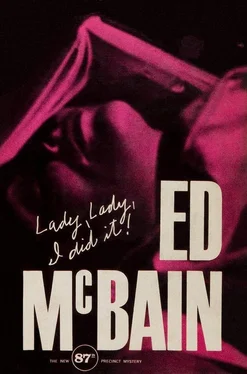
![Дэвид Лоуренс - Lady Chatterley's Lover [С англо-русским словарем]](/books/26613/devid-lourens-lady-chatterley-s-lover-s-anglo-thumb.webp)
